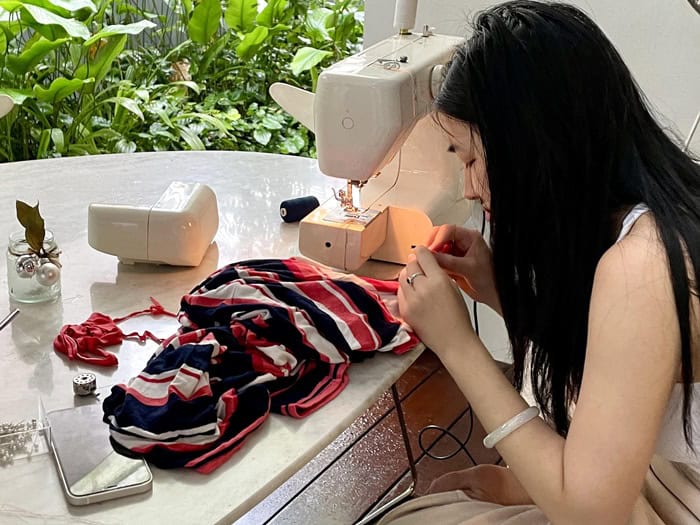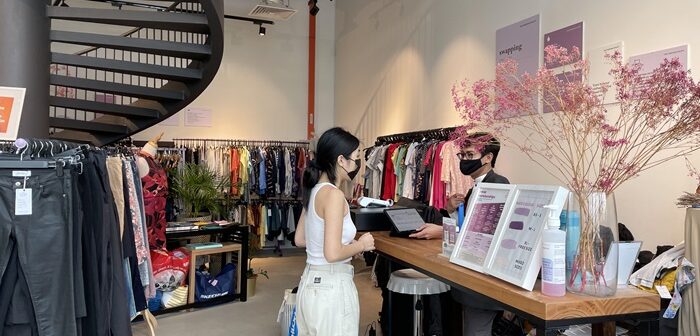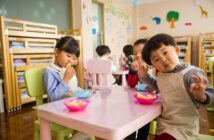Twinkl is a digital educational publisher which provides a complete range of teacher-created resources, covering entire schemes of work, lesson planning, assessments and educational games. For more information, click here.
——————————————-
Sustainability is a topic that affects us all. Data by the UN shows that worldwide consumption and production continue to be destructive to the planet. For example, their research shows that by 2050, the equivalent of almost three planets would be needed to provide the natural resources to sustain our current lifestyles. However, we only have this one planet. Singapore is taking action to contribute to a more sustainable world with its own Green Plan 2030, which outlines how individuals and organisations can act to be more sustainable. But how does this translate into the real world? Both Michelle Choy and Lauren Tan who are mothers of six in Singapore share their thoughts on sustainability and techniques which you can incorporate into your daily lifestyle.
“I don’t think Singaporean culture is geared towards being green but we are definitely trying. We still have that lifestyle of accepting paper bags with our purchases, buying items brand new and replacing the old with the new during festive seasons. There have been campaigns to push for sustainability and incentives so there is definitely an awareness but we have some way to go,” says Michelle.

As a child, she was introduced to the concept of sustainability in school and by her mom. Like many in her generation, she practised the basics like reducing waste, recycling bins and reusing items. However, it was her teenage daughters who took the extra mile to research in-depth and inspire the family to make greener choices.
Some of the choices include simple things like always bringing their own food containers for packing leftover food. If they intend to get furniture, they would search online on platforms like Carousell or Facebook marketplace to buy secondhand items. Her daughters refrain from shopping in the malls and buy from thrift stores or bring clothes they no longer wear to clothes swap stores to update their wardrobe. Her daughters have also learnt how to sew so that they can repurpose their old clothes.
“There is a lot of thought that goes into being sustainable and you need to be conscious about it. It was especially tough for my husband. As Singaporeans, we were used to going to the stores to buy whatever we needed so our daughters constantly encouraged us to change our habits towards a more minimalist lifestyle,” she says.
Furthermore, Michelle explains how she had gone through a challenge of not buying anything new, with the exception of food, for 200 days and this put everything into perspective for her.
“When you attempt this challenge, it makes you very conscious of our wasteful mindset. Did we really need another pretty mug when we already have more than enough at home? After this challenge, I now question myself before I buy anything new,” Michelle says.
To Michelle, educating the younger generation about the real issues of climate change and getting inclined with the concept of sustainability is crucial.
“They are impressionable at a young age and they can become passionate about this. However, schools must also walk the talk in classrooms. My second daughter had the courage to speak up in front of the whole school about how they gave lectures on environmentalism yet never practised what they preached. She called out the teachers on constantly printing multiple sheets for each student when the questions could be flashed on screen. Her Chemistry teacher told me that whenever she wants to print something, she always keeps my daughter’s words in mind,” she says.
Michelle explains that being sustainable is a habit change. It is not easy at first, but there will be a turning point where it becomes a new habit.
“The most important reason is preserving this Earth for the next generation,” Michelle says.
Lauren Tan also agrees with Michelle and explains that awareness of being sustainable is still low amongst Singaporeans.
“I have always known the basics of being green like reducing, reusing and recycling but I only learnt it more in-depth when I started homeschooling my children. We researched it from the books we came across and my daughter who used to be in the environmentalist CCA also took that extra mile to educate and inspire us,” Lauren explains.
Her family practises bringing their own containers and water bottles whenever they go out. They also shop more at thrift shops to avoid buying new clothes and also practise repurposing and upcycling old clothes. She believes that people should have their own style instead of following fashion trends which she says tend to sometimes die within a few years.
“Always lead by example. When your kids see you do it, they will definitely follow. Start with books that explain to them the purpose of being sustainable and practise what you preach. Baby steps go a long way in saving the environment,” Lauren says.




